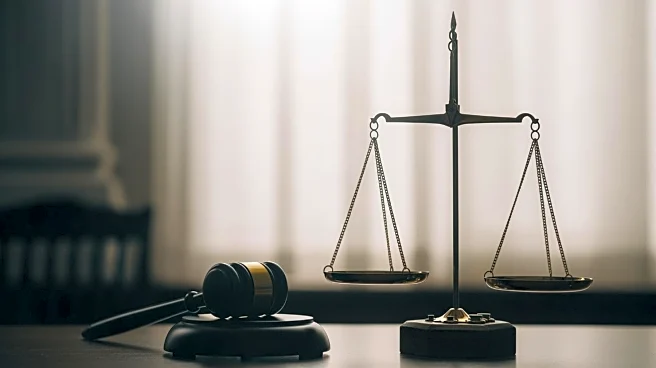What's Happening?
Former FBI Director James Comey has filed motions to dismiss a federal indictment against him, arguing that the charges are a result of President Trump's personal animus. Comey's legal team, led by attorney
Patrick Fitzgerald, claims the indictment is based on a vindictive and unlawful prosecution, with multiple constitutional violations. They also challenge the appointment of interim U.S. Attorney Lindsey Halligan, asserting she was defectively appointed. The indictment, which includes charges of making false statements to Congress and obstruction of justice, is seen by Comey's team as a retaliatory action ordered by President Trump. A hearing on these motions is scheduled for November 19 in Alexandria, Virginia.
Why It's Important?
The case against James Comey highlights significant concerns about the use of prosecutorial power and the potential for political influence in legal proceedings. If Comey's claims of vindictive prosecution are substantiated, it could have far-reaching implications for the integrity of the U.S. justice system, particularly regarding the independence of federal prosecutors. The challenge to Halligan's appointment also raises questions about the legality of interim appointments bypassing Senate confirmation, which could affect other similar appointments made during President Trump's administration. The outcome of this case could set precedents for how such legal and constitutional issues are handled in the future.
What's Next?
The court is set to hear arguments on the motions to dismiss the indictment on November 19. If the motions are denied, Comey's legal team plans to file additional motions challenging the case, including claims of grand jury abuse. The legal battle is likely to continue, with potential implications for the Justice Department's handling of politically sensitive cases. The decision on Halligan's appointment could also influence other cases where interim U.S. attorneys were appointed without Senate confirmation.
Beyond the Headlines
This case underscores the ongoing tension between the executive branch and the judiciary, particularly in politically charged cases. It also highlights the ethical and legal challenges faced by prosecutors in maintaining impartiality and independence. The scrutiny of Halligan's appointment may lead to broader discussions about the balance of power between the presidency and the Senate in judicial appointments, potentially prompting legislative or judicial reforms.











